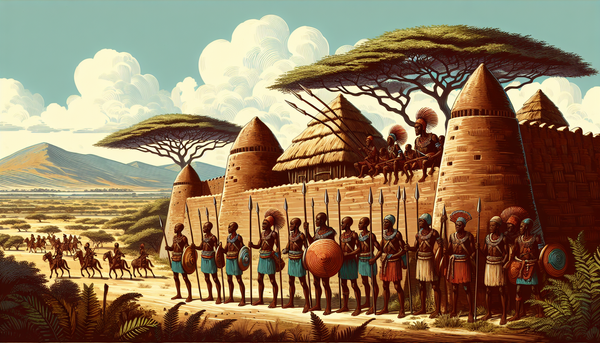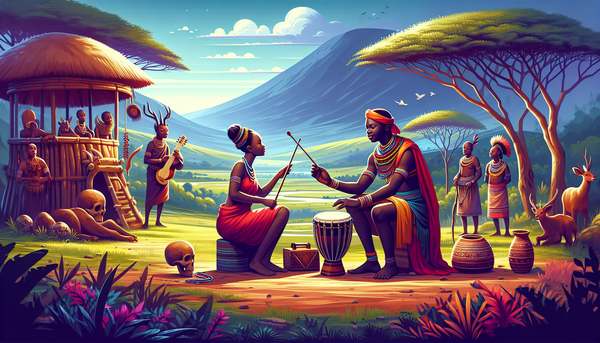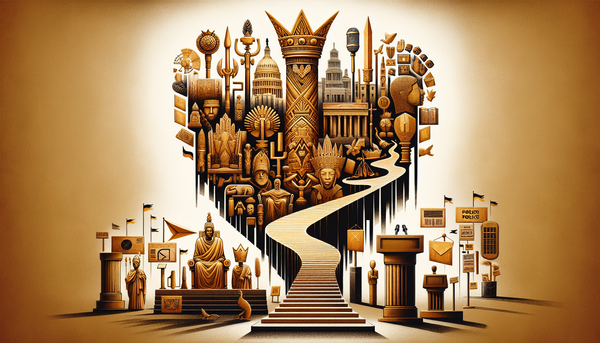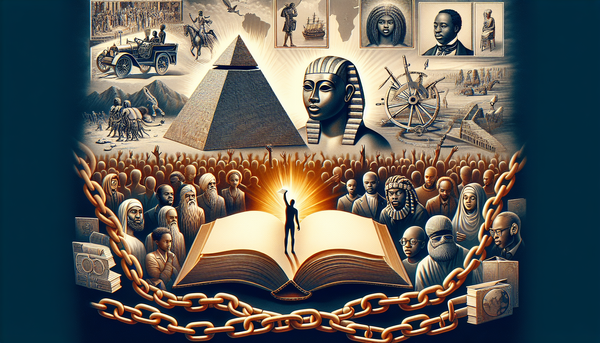The Evolution of Sports in Ancient African Cultures
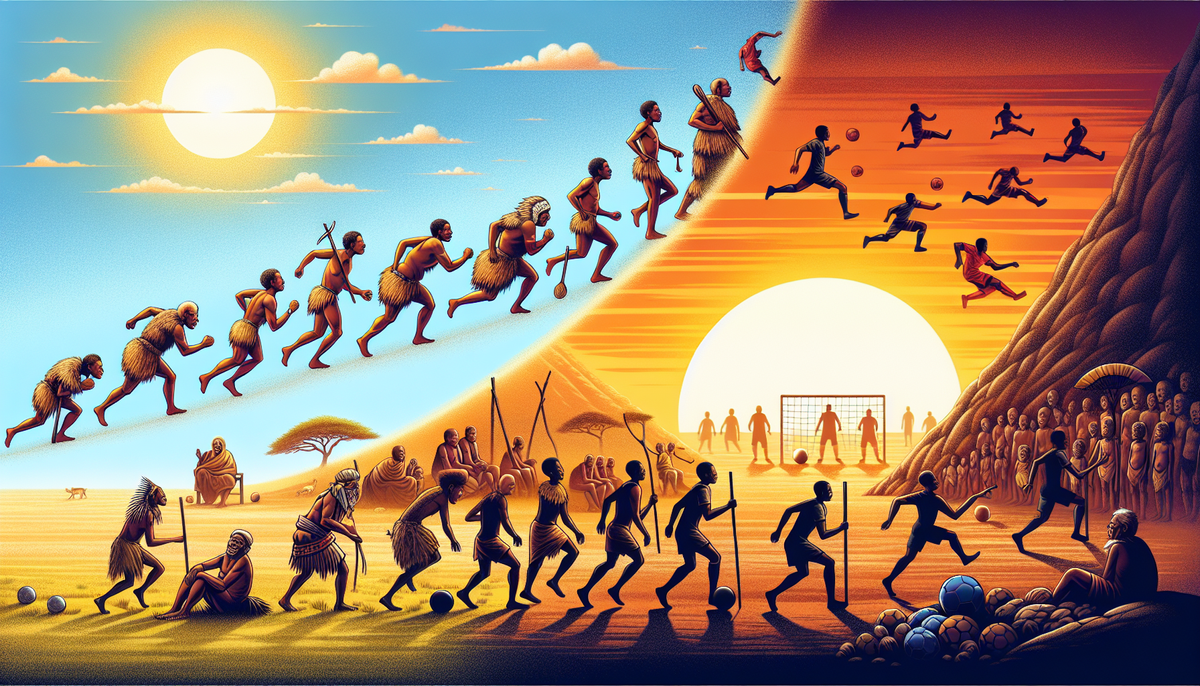
Origins of Sporting Activities in Ancient Africa
The roots of sporting activities in ancient Africa can be traced back to the continent's diverse cultures and environmental contexts. Early humans engaged in physical activities primarily for survival, honing skills necessary for hunting and gathering. These early forms of exercise laid the foundation for more organized sports that followed.
Historically, many African communities utilized games as a means of fostering unity, physical strength, and agility. These activities varied significantly among tribes and regions, often reflecting the local customs and practices. For instance, the Maasai warriors of East Africa showcased their strength and bravery through jumping contests, while the Yoruba people engaged in traditional wrestling, which held both competitive and spiritual significance.
Additionally, ancient African civilizations such as Egypt integrated athletics into their society, as evidenced by depictions in hieroglyphics that illustrate various forms of sport, including wrestling, archery, and running. Sports were not merely entertainment; they played a crucial role in social bonding, skill development, and community identity. Thus, the origins of sporting activities in ancient Africa reveal a rich tapestry of cultural expression and human development, rooted in both survival and celebration.
Development of Team Competitions and Individual Challenges
As ancient African cultures evolved, so too did the complexity of their sporting activities. The development of team competitions and individual challenges emerged as societies sought ways to foster community bonds and showcase personal prowess. These sporting events became essential for social cohesion, allowing participants to engage in friendly rivalry while celebrating their cultural heritage.
In many traditions, team competitions revolved around agricultural cycles or seasonal festivals, often involving games like relay races or tug-of-war that required coordination and strategy. Such group activities not only entertained but also promoted teamwork and collective identity. For example, the popular game of "oma" among the Akan people of West Africa emphasized collaboration and unity as teams competed to outmaneuver each other.
Conversely, individual challenges showcased personal skill and endurance. Wrestling, running, and archery were prominent, attracting large audiences who gathered to witness exceptional feats of athleticism. Notable wrestlers and runners often gained significant social status, reinforcing their roles as community leaders and heroes.
These developments in sporting activities not only reflected the intricate social structures of ancient African societies but also paved the way for the evolution of competitive sports that are celebrated across the continent today. Through both team and individual sports, communities reinforced their cultural narratives while nurturing a spirit of competition.
Influence of Rituals and Religious Practices on Sports
Rituals and religious practices have historically played a significant role in shaping the sporting activities of ancient African cultures. Many games and physical contests were deeply intertwined with spiritual beliefs, serving as both a means of worship and a form of community celebration. These events often marked significant agricultural seasons or life transitions, with sports acting as a conduit for invoking blessings from ancestors or deities.
For instance, in various ethnic groups, rituals were conducted before matches to seek divine favor and ensure the safety of participants. In some communities, athletes would perform ceremonial dances or recite incantations, believing that such practices could enhance their performance and bring good fortune. The significance of dance and movement in ritual contexts also propelled the development of athletic disciplines, blending artistic expression with physical exertion.
Additionally, some sports were seen as a reflection of cosmic principles. The Maasai's jumping contests, for example, were symbolic of reaching for the heavens, while wrestling matches often represented the struggle between good and evil. This intertwining of spirituality with athleticism established a cultural framework where sports became not only a test of physical ability but also an essential component of identity, spirituality, and community cohesion in ancient African societies.
Introduction of Various Athletic Tools and Equipment
The introduction of athletic tools and equipment marked a pivotal development in the sporting landscape of ancient African cultures. Initially, physical activities relied heavily on natural resources and the human body, but as societies progressed, so did their ingenuity in crafting specialized instruments to enhance performance and competition.
One notable example is the use of wooden sticks and stones for games like spear-throwing and archery, which were not only essential for hunting but also evolved into competitive events. The Maasai utilized bows and arrows in both combat training and traditional games, highlighting the dual purpose of athletic tools in fostering skills for survival and sport.
In addition to weaponry, various forms of balls and other equipment emerged for different games. The Ghanaian game of "oware," played with seeds in carved wooden boards, illustrates the blend of strategy and physical interaction in sports. Furthermore, traditional wrestling matches were often held on sandy grounds, where the soft surface provided a safe environment and facilitated movement.
These innovations in athletic tools were crucial in refining techniques and expanding the scope of competitions. The creation and adaptation of specialized equipment not only advanced athletic performance but also underscored the cultural importance of sports in the daily lives and traditions of ancient African communities.
Transition and Cultural Exchange with Other Civilizations
The transition and cultural exchange between ancient African civilizations and neighboring societies played a significant role in the evolution of sports across the continent. As trade routes expanded and interactions with other cultures increased, so did the exchange of ideas, practices, and sporting traditions. This cultural diffusion enriched the sporting landscape, leading to the adaptation and incorporation of new games and athletic competitions.
For instance, coastal trade with the Mediterranean civilizations introduced various athletic practices prevalent in ancient Greece and Rome. The emphasis on organized competitions can be observed in the emergence of more formalized athletic festivals, which mirrored the Olympic ideals of competition and excellence. Similarly, the arrival of Arab traders brought new sports, such as chess and various forms of martial arts, which blended seamlessly with existing practices.
Furthermore, migration of peoples, such as the Bantu expansion, facilitated the spread of traditional games across vast regions of Africa. The incorporation of diverse elements from one community to another not only diversified the types of sports but also fostered a sense of unity among disparate cultures.
Through these interactions, sports became a dynamic platform for cultural exchange, serving as a means to bridge communities and celebrate shared values while enriching the athletic heritage of ancient Africa.
Role of Sports in Social and Political Life
Sports in ancient African societies functioned as more than mere entertainment; they played a vital role in the social and political fabric of communities. Athletic competitions were often integral to rituals and celebrations, acting as a means to reinforce social cohesion and identity. Sports served as a forum for community gatherings, where individuals from different backgrounds came together to engage in friendly rivalry and foster relationships, thereby strengthening communal bonds.
Politically, sports were utilized as tools for asserting power and status. Leaders and chieftains often sponsored athletic events to demonstrate their wealth and influence, consolidating their authority within the community. Victories in competitions could elevate an individual’s social standing, allowing them to ascend in hierarchy and gain recognition as a community leader. Furthermore, sporting events were sometimes infused with political significance, symbolizing resistance against colonial powers or conflicts within and between ethnic groups.
Additionally, sports provided an accessible means for voicing social issues and grievances. Competitions became platforms for promoting cultural heritage and traditional values, allowing communities to assert their identity amid external influences. Overall, the multifaceted role of sports in ancient Africa encompassed socialization, leadership, and socio-political expression, underscoring their importance in shaping both individual and communal identities.
Preservation and Continuity of Traditional Games
The preservation and continuity of traditional games in Africa showcase the enduring significance of cultural heritage in the face of globalization and modernization. Many indigenous sports have been passed down through generations, serving as vital links to ancestral histories, values, and communal identity. These games, often rooted in ritualistic practices and storytelling, embody the rich tapestry of local cultures, promoting camaraderie and belonging among participants.
Community elders and leaders play a crucial role in the preservation of these sports. Through organized events, storytelling, and direct participation, they ensure that younger generations understand the cultural context and historical significance of each game. Events like the annual wrestling competitions among the Fulani or traditional dances during harvest festivals exemplify how these games continue to thrive and adapt to contemporary contexts.
Furthermore, the rise of cultural festivals and sports academies has revitalized interest in indigenous games, allowing them to receive the recognition they deserve within broader sporting narratives. International exposure, facilitated by tourism and digital platforms, has helped shed light on traditional African sports, promoting their value as cultural heritage rather than merely local pastimes.
Through collective efforts, traditional games remain a vibrant expression of identity, fostering community pride and resilience while navigating the complexities of modern life.
